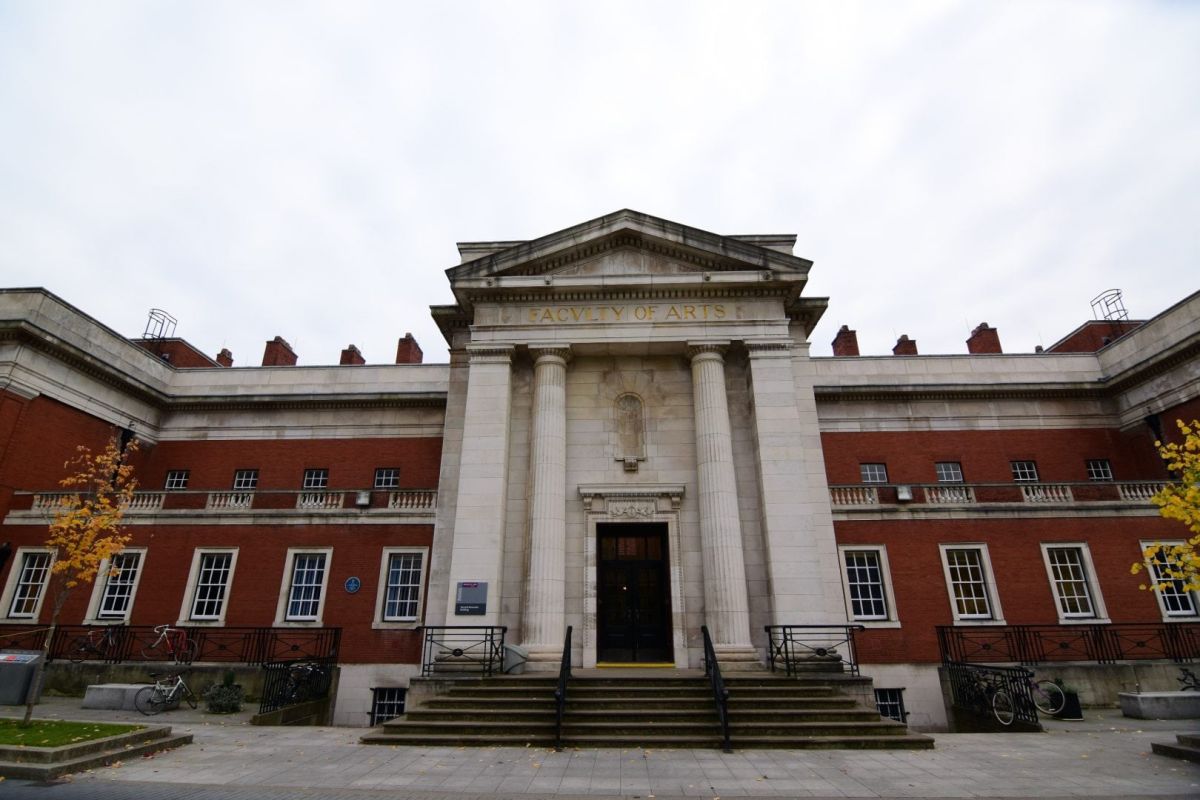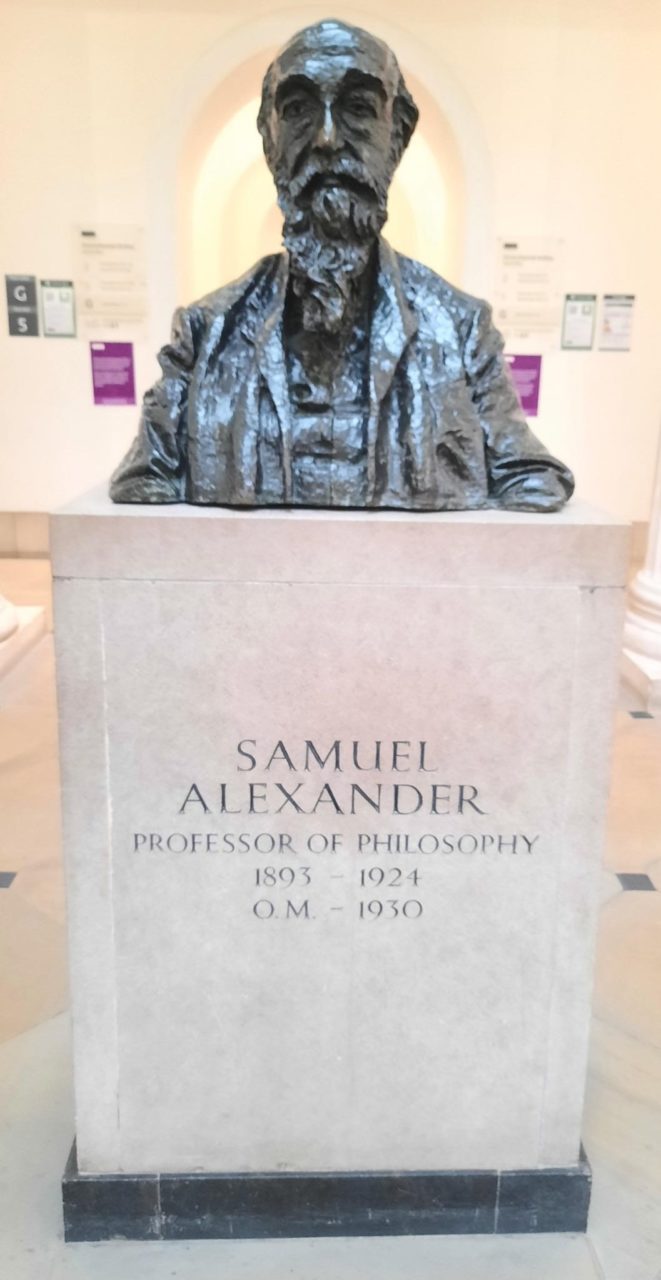The man, the myth, the building: Samuel Alexander

Words by Ella Reading
The Samuel Alexander building has been affected particularly badly by the recent flooding on Oxford Road. When I received an email notifying me of its closure, I began to wonder why the building has its name.
The Samuel Alexander building, previously called Humanities Lime Grove, and renamed in 2007, contains a bust of Alexander in the main entrance hall. Jacob Epstein presented it to the university in 1925. But who is Samuel Alexander, and what’s his significance to the University of Manchester?
Who is Samuel Alexander?
Born into a Jewish family in 1859 in Sydney, Australia, Alexander became a highly influential philosopher and professor, mostly active in the first half of the twentieth century.
He spent the earlier years of his life growing up in Australia, and enrolled at the University of Melbourne in 1875. It was clear that Alexander had a sharp mind. So much so that his mother gave him the money to come to England to pursue a scholarship at the University of Oxford, which he obtained, and he enrolled at Balliol College in 1877.
He spent the next sixteen years of his life in Oxford, becoming a Philosophy tutor at Lincoln’s College in 1882. A notable publication by Alexander whilst a tutor was his 1889 work. Moral Order and Progress: An Analysis of Ethical Conceptions considered how moral philosophy could be progressed. He was also the first Jewish fellow of an Oxbridge college.

Alexander’s time in Manchester
Four years after this publication, in 1893, Samuel Alexander arrived in Manchester to be a professor of Philosophy at Owens College (now The University of Manchester). He was the first Samuel Hall Professor of Philosophy and remained in his position for thirty-one years, until his retirement in 1924.
During his time at the university, the professor contributed massively to expanding student life. For example by helping to set up Ashburne Hall, the first female hall of residence at the University of Manchester. He also contributed to the independent status of the university.
Aside from his work as a professor and key figure in the establishment of the University of Manchester, Samuel Alexander was renowned for his philosophical ideas. He was a crucial thinker in the twentieth century, mainly known for breaking away from the idea of British idealism.
Alexander’s Work
Idealism is focused on linking ideas from the mind to reality. Samuel Alexander branched away from this by creating his own interpretation of realism. He approached philosophy rationally and incorporated a range of sciences. Contributing to a new branch of philosophical thinking referred to as British emergentism, which considers the philosophy of the mind and ideas about consciousness. He heavily influenced the development of metaphysical realism in the twentieth century. This argues the majority of objects on earth exist independently of human thought.
In 1920, he published Space, Time and Deity, which suggests that space time included everything else in reality, for example, the bicycle that Alexander elected as his primary method of transport around the university. Surely members of the Cycling Society can appreciate this transport choice even to this day!

In terms of personal connections, it appears Samuel Alexander built a close relationship with Naomi Mitchinson. She was born in Scotland but grew up in Oxford. He offered her ample advice to allow her skill to flourish as a poet and novelist, and treated her like a father figure would. In 1902, the entire Alexander family came from Sydney to Manchester to live with Samuel Alexander. When he died in 1938, he was unmarried, and still lived in Manchester – for a short while at 6 Mauldeth Road West.
Alexander’s death
After his death, there were two main contributions that Samuel Alexander made to the academic community in his will. The first was to the University of Jerusalem and the second to the University of Manchester, marking his interest in developing the communities and education at these institutions.
In modern Manchester, Samuel Alexander’s work is accessible in the John Rylands Library, worth a visit alone for its marvellous interior and exterior.
Samuel Alexander is an example of one of the many intriguing figures remembered by the university. There are many more buildings, each with a captivating story to be told. Next time you pass through a university building, consider its past and wonder why it has the name it does. Perhaps this will inspire you to research it and discover a hidden gem in the university’s, or Manchester’s, history.







